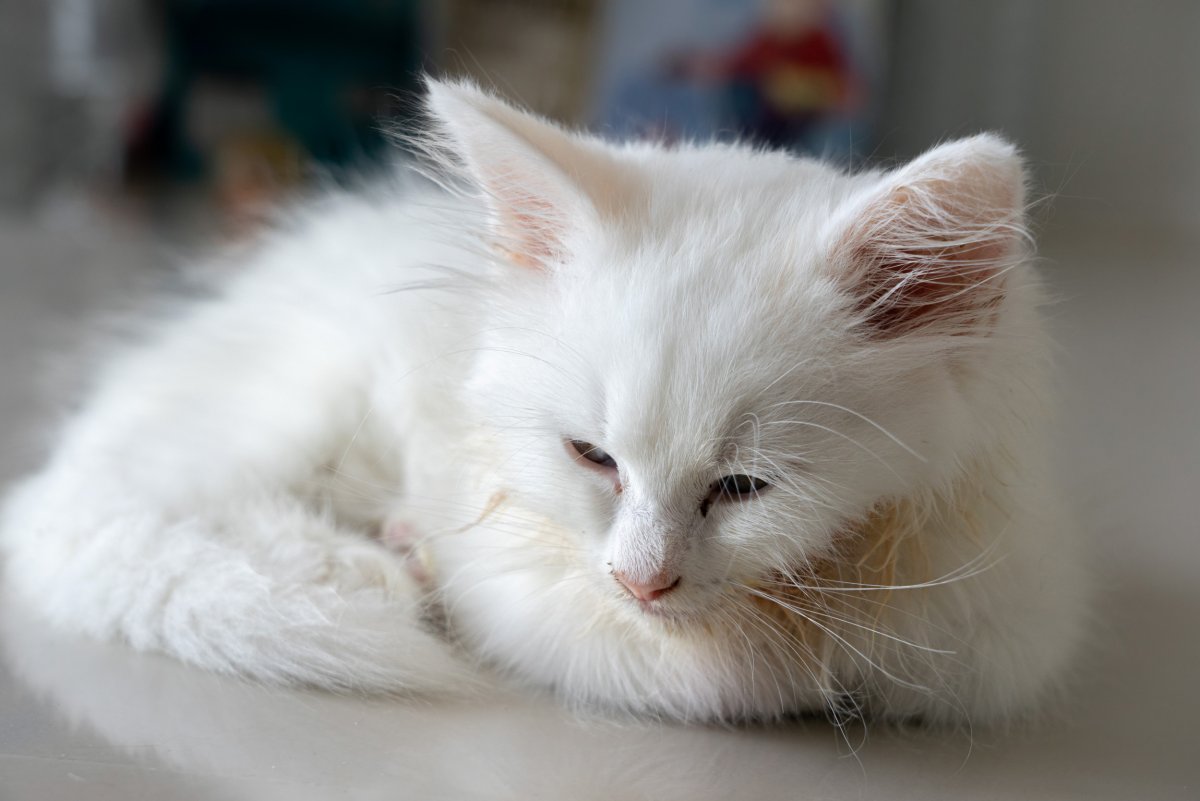An animal shelter in Toledo, Ohio has had to shut to new adoptions following an outbreak of a cat virus.
The highly contagious and often deadly virus, known as feline panleukopenia, has been spreading among cats at the Wood County Humane Society after a sick kitten tested positive earlier this month.
The shelter has been closed for deep cleaning for more than a week and its doors will be closed for at least another 10 days, local news channel WGTV reports.
"Panleukopenia is a cat specific virus, and it can do a lot of damage in a short amount of time, especially in a shelter setting. It attacks and suppresses a cat's white blood cells, which are a major component of their immune system," Wood County Humane Society said in a Facebook post announcing the closure. "It also is highly contagious to other cats and when not properly disinfected, can live in environments for months.

"There's no preventive testing until a cat or kitten is actively shedding the virus. The only treatment is supportive care and even then with supportive hospitalization care, survival rate is extremely low, at about 20 percent, according to the American Veterinary Medical Association (AVMA)."
Symptoms in infected cats include high fever, vomiting, loss of appetite, lethargy and occasionally hemorrhagic diarrhea. Kittens are the most severely affected by the virus. There are no antivirals that treat the infection, so the only course of treatment is supportive care. Without treatment, including medications and fluids, a large proportion of infected cats may die.
Thankfully, humans cannot get sick from the virus.
"This virus is very specific to cats and there are no reports of it ever infecting people despite circulating for [more than] 80 years," Sarah Caddy, a clinical research fellow in viral immunology and veterinary surgeon at the University of Cambridge, told Newsweek.
"It is so hard to watch," Megann Smith, Director of Operations for Wood County Humane Society, told WGTV. "You see them go from fun-loving little kittens to the virus taking over their body."
About 10 cats and kittens are still at the shelter where they are being quarantined in separated areas. More than 40 others are in foster homes right now. All but one of the dogs at the shelter are also in a foster home.
"We are deep cleaning with a surgical scrub making sure everything is covered, we're using gloves," said Smith. "We are cleaning the walls, floors, the door handles, everything we can do for a viral cleanse."
The virus is spread via body fluids including urine, feces, and nasal secretions, which can transmit the virus when another cat is exposed to such fluids, or bedding, cages and food dishes touched by an infected cat. It is highly contagious, with humans sometimes inadvertently harbouring the virus.

"We carry germs, bacteria and viruses on us all the time," said Smith. "You come into contact with something and it's on the bottom of your shoe or on your shirt, things of that nature."
"You never know what you'll bring into your house, so make sure your cats are protected," she said. "It doesn't matter if they do not go outdoors."
"This virus is preventable by a completed FVRCP vaccine series (the P is for Panleukopenia) in healthy adult cats," Wood County Humane Society said in the Facebook post. "Kittens, young adults, and immune-compromised cats are still vulnerable. Just like with people, vaccines are not a guarantee for full protection, they simply work to enhance your body's ability to fight off the virus. Most viruses can take days to a couple of weeks before symptoms are apparent and within that time more cats could be exposed."
Six cats at the shelter have been euthanized so far, much to the dismay of the staff and fosterers.
"I am a certified pet loss bereavement specialist, but while I have the skills to help the team navigate the loss it doesn't make it easy," said Smith. "This fuels the fire to work to keep everybody else in the building safe."
The shelter has asked the public for donations to help them during this period, as well as foster parents to take on cats during their quarantine period.
"We're using multiple cleaners at a higher concentration, bringing staff in for longer hours, so our costs have gone up a bit during this time," said Smith.
Newsweek has contacted Wood County Humane Society for comment.
Do you have a tip on a science story that Newsweek should be covering? Do you have a question about feline panleukopenia? Let us know via science@newsweek.com.
Uncommon Knowledge
Newsweek is committed to challenging conventional wisdom and finding connections in the search for common ground.
Newsweek is committed to challenging conventional wisdom and finding connections in the search for common ground.
About the writer
Jess Thomson is a Newsweek Science Reporter based in London UK. Her focus is reporting on science, technology and healthcare. ... Read more
To read how Newsweek uses AI as a newsroom tool, Click here.






